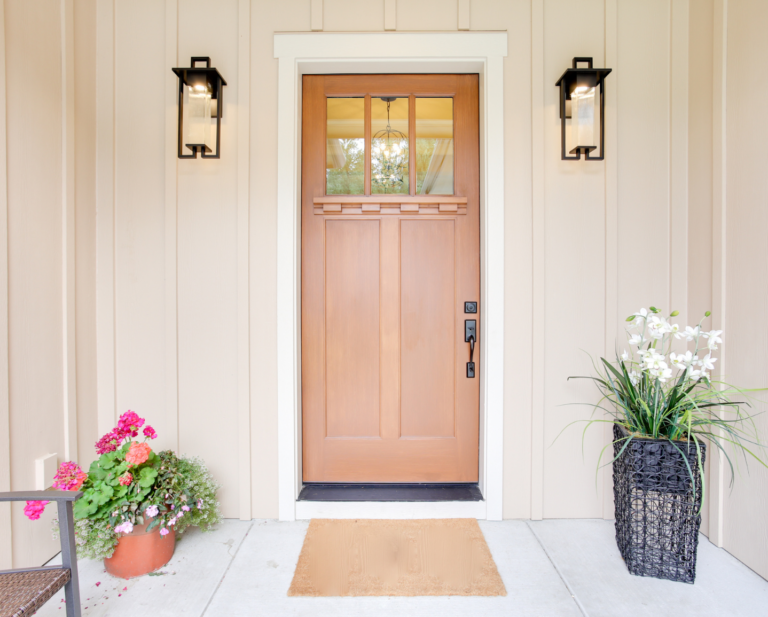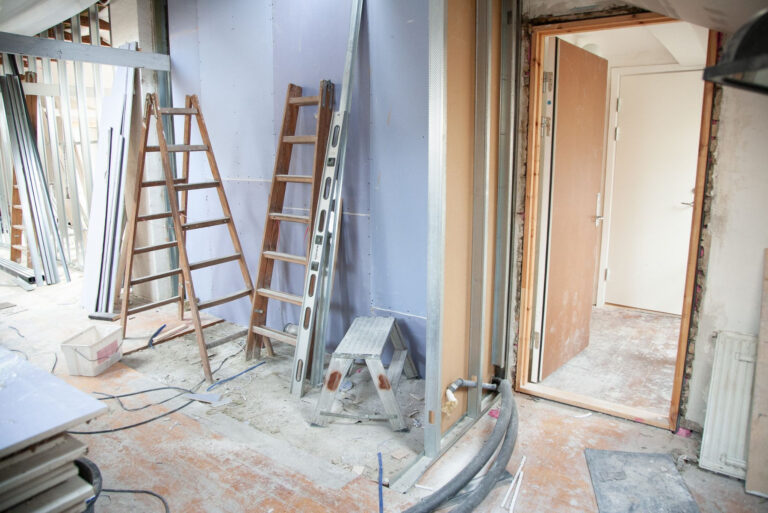Owning a home is one of the most significant financial investments you’ll make in your lifetime. While it may seem daunting at first, proper planning and smart decision-making can make the dream of homeownership a reality—especially for first-time buyers. Here’s a guide with actionable tips to help you prepare for this exciting milestone.
Start Saving Early
Building a down payment is one of the biggest challenges for first-time homebuyers. Start by creating a dedicated savings plan:
- Set a Target: Research typical down payment requirements. Conventional loans often require 5%-20%, while FHA loans may allow as little as 3.5%.
- Automate Savings: Set up automatic transfers to a high-yield savings account. Consistent, small contributions can add up over time.
- Cut Expenses: Reduce discretionary spending like dining out, subscriptions, or vacations to accelerate your savings.
- Windfalls and Bonuses: Allocate tax refunds, work bonuses, or gifts toward your down payment.

Look for First-Time Homebuyer Programs
Many local, state, and federal programs are designed to help first-time buyers:
- Down Payment Assistance (DPA): Grants or low-interest loans to help cover your down payment.
- Tax Credits: Some programs offer credits that can reduce your federal tax liability.
- Closing Cost Assistance: Help with one-time fees associated with purchasing a home.
- Research Local Options: Check resources like HUD or your state’s housing finance authority for programs in your area.
Improve Your Credit Score
Your credit score significantly impacts your ability to secure a mortgage and the interest rate you’ll pay:
- Monitor Your Score: Check your credit report for errors through free services like AnnualCreditReport.com.
- Pay Bills on Time: Late payments can lower your score dramatically.
- Reduce Debt: Keep credit card balances below 30% of your credit limit.
- Avoid New Credit: Minimize hard inquiries by avoiding new credit card or loan applications before applying for a mortgage.

Consider a Fixer-Upper
Purchasing a home in need of repairs can save you money upfront:
- Lower Purchase Price: Homes needing updates often sell for less.
- DIY Projects: Save money by handling smaller renovations yourself.
- Renovation Loans: Explore financing options like FHA 203(k) loans, which bundle the cost of the home and necessary repairs into one loan.
- Plan Wisely: Be realistic about the time, cost, and effort renovations will require.
Explore Different Loan Options
Not all mortgages are created equal. Research loan types to find the best fit:
- Conventional Loans: Typically require higher credit scores but may offer better terms.
- FHA Loans: Designed for buyers with lower credit scores and smaller down payments.
- VA Loans: Exclusive to veterans and active-duty military with no down payment required.
- USDA Loans: For rural homebuyers with low-to-moderate incomes.
- Compare Lenders: Request quotes from multiple lenders to understand your options.
Find a Reliable Real Estate Agent
A knowledgeable real estate agent can make your home-buying journey smoother:
- Expertise: Agents have local market insights and negotiation skills.
- Connections: They can recommend trusted lenders, inspectors, and contractors.
- Guidance: An agent can help you navigate complex paperwork and processes.
- Compatibility: Choose someone who understands your needs and communicates effectively.
Shop Around for a Mortgage
Don’t settle for the first mortgage offer you receive. Compare:
- Interest Rates: Even a small difference in rates can save thousands over the life of the loan.
- Loan Terms: Understand fixed-rate vs. adjustable-rate mortgages (ARMs).
- Closing Costs: Fees can vary widely between lenders.
- Preapproval: Get preapproved to understand how much house you can afford and show sellers you’re serious.
Consider a Co-Signer
If your income or credit history needs a boost, a co-signer can help:
- Increased Eligibility: Lenders may approve larger loans with a co-signer’s backing.
- Risk Sharing: Ensure both parties understand the financial and legal implications.
- Alternatives: Explore other ways to strengthen your application, such as increasing your down payment.
Reduce Your Debt
Lowering your debt-to-income (DTI) ratio can increase your borrowing power:
- Pay Down Balances: Focus on high-interest debts like credit cards.
- Avoid New Debt: Delay major purchases until after your mortgage closes.
- Consolidate Loans: Consider consolidating multiple debts into one manageable payment.
- Track Progress: Use budgeting apps to stay on top of payments.
Plan for Ongoing Expenses
Homeownership involves more than just a mortgage payment. Prepare for:
- Property Taxes: Rates vary by location and home value.
- Homeowners Insurance: Protect your investment against unforeseen events.
- Maintenance Costs: Budget 1%-3% of your home’s value annually for repairs.
- Utilities: Factor in heating, cooling, water, and electricity costs.
- Emergency Fund: Save for unexpected expenses like a new roof or HVAC system.
In Summary
Owning a home is a big step, but it’s achievable with proper planning. By saving early, improving your credit, exploring assistance programs, and working with a knowledgeable real estate agent, you can find a home that fits your budget and lifestyle. Start your journey today and enjoy the many benefits of homeownership, from building equity to creating a space that’s truly your own.

Why Buyers Need an Expert Agent By Their Side
The process of buying a home can feel a bit intimidating, even under normal circumstances. But today’s market is still anything but normal. There continues

How To Know If You Are Ready To Buy A Home
If you’re trying to decide if you’re ready to buy a home, there’s probably a lot on your mind. You’re thinking about your finances, today’s mortgage rates and home

Why Buying a Townhome is Perfect for First-Time Home Buyers
Are you a first-time home buyer? The prospect of stepping into the real estate market and finding your dream home can be both exciting and

Touring a House: Key Things to Look For When Buying Your First Home
Buying your first home is an exciting milestone, but it can also feel overwhelming. When you step into a potential home, it’s easy to get

Unveiling the Essentials: What You Need to Know About Your Homeowners Insurance
Owning a home is a significant milestone, but safeguarding it with the right homeowners insurance is equally crucial. Whether you’re a first-time homeowner or a

How Can I Afford Home Ownership?
Owning a home is one of the most significant financial investments you’ll make in your lifetime. While it may seem daunting at first, proper planning
